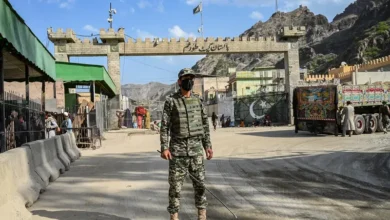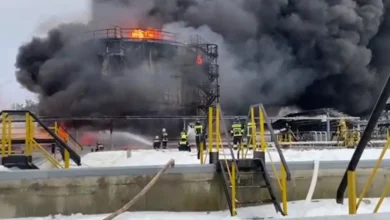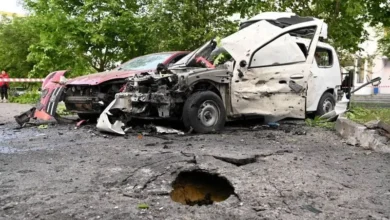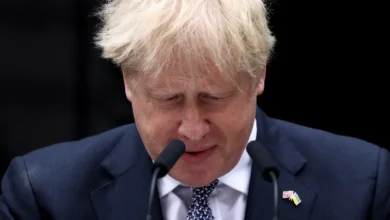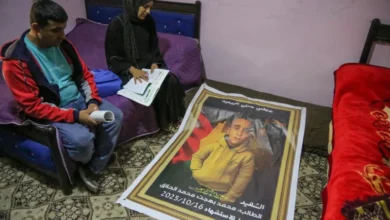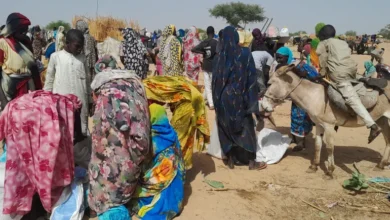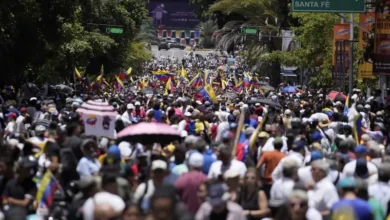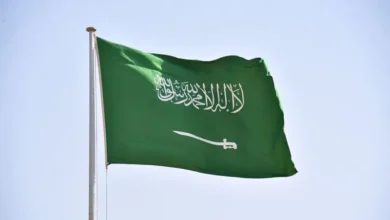Trump proposes 20-point plan to end war in Gaza
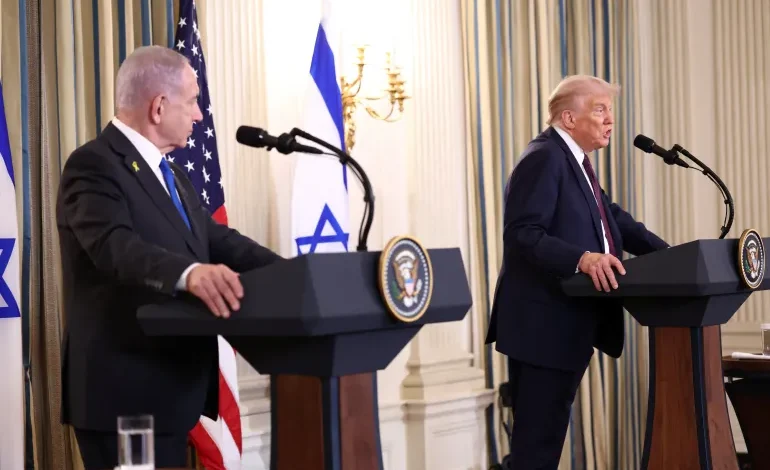
United States President Donald Trump says “we’re beyond very close” to ending the war in Gaza after meeting Israeli Prime Minister Benjamin Netanyahu at the White House and presenting a 20-point peace plan.
He called Monday a “historic day for peace” as he spoke at a news conference with Netanyahu at his side.
Netanyahu praised Trump, saying: “I support your plan to end the war in Gaza, which achieves our war aims.”
The US president said he was “hearing that Hamas wants to get this done too”.
But Hamas official Mahmoud Mardawi, speaking to Al Jazeera’s Mubasher TV after the news conference, said the group has not yet received Trump’s written Gaza peace plan.
Trump said “everyone else has accepted it” but added that if Hamas fails to agree to the plan “as you know, Bibi, you’d have our full backing to do what you would have to do.” Bibi is Netanyahu’s nickname.
Trump said: “Prime Minister Netanyahu was very clear about his opposition to a Palestinian state, … and I understand and respect his position on many things, but what he’s doing today is so good for Israel.”
He noted that a number of allies have “foolishly recognised the Palestinian state, … but they’re really, I think, doing that because they’re very tired of what’s going on.”
20-point peace plan
In its 20-point peace plan released on Monday, the White House said the US would establish a dialogue between Israel and Palestine and that within 72 hours of Israel accepting the agreement, all Israeli captives would be released.
If both sides agree, the war “will immediately end”, according to the plan.
Israeli forces would withdraw to agreed-upon lines to prepare for the captive release. Once all Israeli captives are released, Israel would release 250 Palestinians serving life sentences and 1,700 people from Gaza who were detained after the start of the war on October 7, 2023, the plan said.
Reporting from Washington, DC, Al Jazeera’s Mike Hanna said the White House had made some “significant shifts in US policy on the region, policy that had been established by the Trump administration, most notably in point 19. Once all these conditions have been established, once a ceasefire is achieved, once the rehabilitation of Gaza is happening, that will pave the way for the institution of a Palestinian state, which is what the people of Palestine want.”
Other provisions include United Nations supervision of immediate humanitarian supplies to Gaza and the deployment of an “international stability force” likely made up of neighbouring Muslim states.
Hanna noted another “very important” element: the creation of a so-called Board of Peace to oversee a technocratic administration in Gaza. “That Board of Peace will be chaired by none other than President Trump but will include other notable figures. Mentioned specifically was former British Prime Minister Tony Blair.”
Hanna said the plan extends beyond a ceasefire and prisoner exchanges, using them instead as a starting point to pursue a Palestinian state.
Qatar will play a key role
Al Jazeera’s diplomatic editor, James Bays, said Qatar remains a pivotal player in negotiations over Gaza and Washington expects it to help persuade Hamas to accept the latest peace plan.
“Qatar, on the Islamic and Arab side, [is] one of the absolute key players here. They’ve been involved in brokering negotiations on Gaza since the start of the war. And I think the fact that they’ve had that apology, I think is going to make things a little easier for Qatar now to play the role that the US wants,” Bays explained, referring to Netanyahu’s apology on Monday to Qatar for deadly air strikes that Israel carried out in Doha on September 9 on Hamas negotiators.
Under Trump’s plan, Hamas members who accept peaceful coexistence would be granted amnesty while others would be allowed to leave Gaza for unspecified countries. But the key question, Bays said, remained whether Hamas would sign on.
Bays also pointed to differences between the written plan and Netanyahu’s position, particularly regarding the Palestinian Authority. “The deal says that if there’s reform of the Palestinian Authority, then eventually they will take a role, … a pathway to Palestinian statehood. Netanyahu was much more guarded. … He said no role for Hamas, no role for the Palestinian Authority.”
